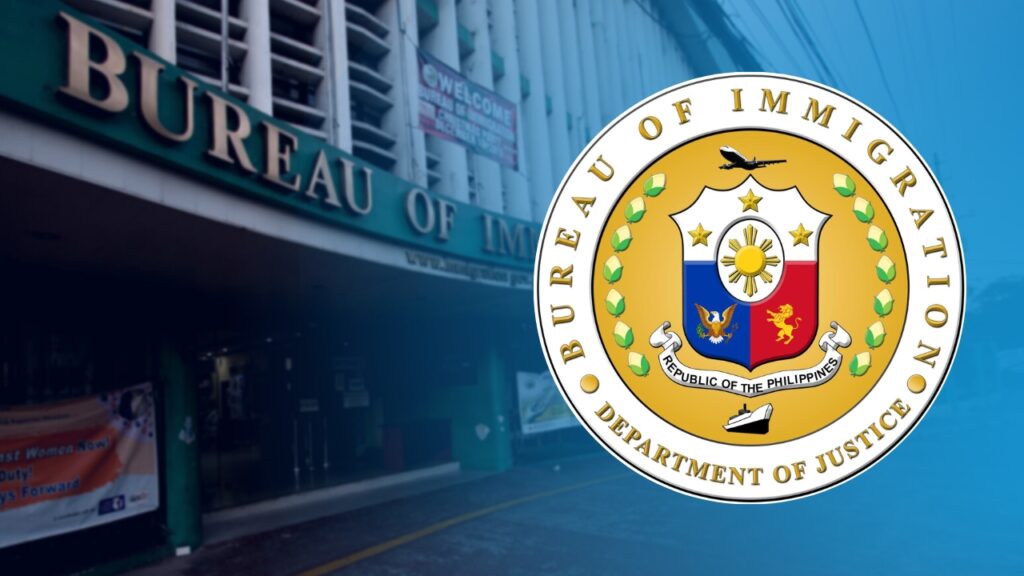As companies increasingly look to Asia for growth opportunities, the Philippines emerges as a prime destination due to its skilled workforce, strategic location, and robust economic expansion. An Employer of Record in the Philippines enables firms to hire employees in the country without establishing a local entity, handling payroll outsourcing, HR compliance, and employment outsourcing. This approach mitigates the risks associated with international expansion in the Philippines, allowing businesses to focus on their core operations while ensuring adherence to Philippine employment law. With a growing economy projected to reach $394 billion in GDP and positioned as one of Asia’s fastest-growing markets, the Employer of Record Asia model, particularly EOR Philippines services, offers a streamlined path for global Employer of Record needs in the Philippines, including talent acquisition and managing remote teams.
Defining Employer of Record Services in the Philippines
Employer of Record services in the Philippines provide a framework where a third-party entity assumes legal responsibility for employees on behalf of a client company, facilitating seamless workforce solutions in the Philippines. This arrangement is particularly appealing for foreign firms engaging in business expansion in the Philippines, as it bypasses the need for direct involvement in complex administrative tasks. By acting as the official employer, the EOR manages all aspects of employment, from contracts to terminations, ensuring compliance with local regulations and labor laws.
Key components of these services include:
- Payroll management: Processing salaries, deductions, and mandatory contributions to agencies like the Social Security System (SSS), PhilHealth, and Pag-IBIG Fund.
- Benefits administration: Overseeing statutory perks such as 13th-month pay, holiday leaves, and maternity benefits under Republic Act 11210, which grants 105 days of paid maternity leave.
- Tax compliance: Handling withholding taxes and annual filings with the Bureau of Internal Revenue (BIR), including updates to contribution rates like the SSS increase to 15% effective January 2025.
- Contract drafting: Creating employment agreements that align with the Labor Code, incorporating provisions for probationary periods and non-compete clauses.
Beyond these essentials, EOR providers offer expertise in navigating cultural nuances, such as the emphasis on work-life balance in Filipino workplaces. This holistic support reduces administrative burdens, allowing companies to scale operations efficiently. For instance, in a market where English proficiency is high—over 90% of the population speaks it fluently—EOR services facilitate effective communication within multinational teams. As global firms prioritize agility, these services have become indispensable, with many reporting cost savings of up to 30% compared to in-house HR setups. The rise of remote work further amplifies their value, enabling the management of distributed teams without geographical constraints. In essence, Employer of Record Philippines solutions democratize access to Philippine talent, fostering innovation and competitiveness in Asia’s dynamic economy.
Advantages of Opting for an EOR in Asian Business Growth
Companies pursuing international expansion in the Philippines often turn to EOR Philippines to capitalize on the country’s strategic advantages, including its time zone alignment with Asia-Pacific markets and a young, tech-savvy workforce. This model not only accelerates entry but also minimizes the risks associated with unfamiliar regulatory landscapes, making it a preferred choice for employer-of-record strategies in Asia. By outsourcing HR functions, businesses can focus on achieving strategic goals, such as market penetration and revenue growth.
The primary benefits encompass:
- Cost efficiency: Avoiding the high expenses of entity setup, which can exceed PHP 500,000, while benefiting from competitive labor costs averaging PHP 695 daily minimum wage in the National Capital Region as of 2025.
- Speed to market: Enabling hiring within weeks rather than months, essential for agile operations in fast-paced sectors like technology and e-commerce.
- Risk mitigation: Transferring liability for compliance issues, such as anti-harassment policies updated in 2025, to the EOR provider.
- Access to talent: Facilitating talent acquisition in the Philippines, where over 1.5 million graduates enter the job market annually, skilled in areas like IT and business process outsourcing.
These advantages extend to enhanced employee satisfaction through professional employer organization structures in the Philippines, which ensure timely benefits and career support. In a region where economic growth outpaces global averages, EOR services support scalable models, such as staff leasing in the Philippines, allowing firms to test markets with minimal commitment. Moreover, they address cultural integration challenges, promoting harmonious remote teams in the Philippines. Data from industry reports indicate that companies using EOR experience 20-40% faster growth in new markets. This efficiency is vital amid rising competition for skilled workers, where HR outsourcing in the Philippines streamlines recruitment and retention. Ultimately, EOR enables businesses to capitalize on the Philippines’ strategic position as a gateway to Asia, facilitating sustainable growth and expansion.
Essential Requirements for Direct Employee Hiring in the Philippines
Foreign companies aiming to hire employees in the Philippines without an EOR face a multitude of requirements that demand extensive documentation and regulatory approvals, often proving overwhelming for those unfamiliar with local systems. This direct approach requires establishing a legal presence, complying with Philippine employment law, and enrolling in various government programs, which can take several months and involve significant resources. The complexity underscores why many opt for compliance outsourcing in the Philippines instead.
Critical requirements include:
- Business registration: Secure a company name with the Department of Trade and Industry (DTI), followed by incorporation with the Securities and Exchange Commission (SEC), requiring notarized articles of incorporation, bylaws, and proof of capital investment.
- Local permits: Obtain barangay clearance, a mayor’s business permit from the local government unit (LGU), and environmental compliance certificates if applicable, involving site inspections and fees.
- Tax and social registrations: Register with the BIR for a Tax Identification Number (TIN), and enroll in SSS, PhilHealth, and Pag-IBIG for statutory contributions, with updated 2025 rates demanding precise calculations.
- Employment permits for foreigners: If hiring foreign workers in the Philippines, acquire an Alien Employment Permit (AEP) from the Department of Labor and Employment (DOLE), demonstrating that no qualified local candidates are available.
These stipulations extend to drafting compliant employment contracts, which must detail wages, hours, and benefits, while adhering to minimum standards, such as the 105-day maternity leave. Non-compliance risks penalties up to PHP 500,000 per violation. The bureaucratic layers, including annual audits and reporting, burden small teams, often leading to errors in classification or contributions. For global firms, coordinating with multiple agencies amplifies the workload, diverting focus from core business activities. This intricate web highlights the appeal of simplified alternatives, as the sheer volume of paperwork and potential for oversights make direct hiring a daunting endeavor.
Detailed Process for Establishing a Business Entity to Hire Staff
Setting up a business entity in the Philippines to directly hire employees involves a protracted, multi-step process laden with administrative hurdles, legal reviews, and financial commitments, making it a formidable task for international companies. This route requires navigating interwoven government agencies, often spanning three to six months, and demands meticulous attention to detail to avoid delays or rejections. The exhaustive nature of these steps illustrates why employment outsourcing in the Philippines via EOR is frequently preferred.
The process unfolds as follows:
- Name verification and reservation: Submit a proposed business name to the DTI or SEC for approval, paying the required fees and waiting up to five days for confirmation, to ensure there are no conflicts.
- Incorporation filing: Prepare and notarize documents such as articles of incorporation, treasurer’s affidavit, and bank certificate of deposit, then file them with the SEC. This process may take two to four weeks for processing and issuance of a certificate of incorporation.
- Local government approvals: Apply for barangay clearance, secure a community tax certificate, and obtain the mayor’s permit from the LGU’s Business Permits and Licensing Office, involving health, fire safety, and zoning inspections.
- Agency enrollments and operational setup: Register with BIR for taxation, DOLE for labor compliance, and social insurance bodies, followed by opening a corporate bank account and hiring initial staff under probationary terms.
Post-setup, ongoing obligations like quarterly tax filings and annual general meetings add layers of complexity. Errors in any step, such as incomplete documentation, can necessitate restarts, incurring additional costs. For firms hiring foreign workers in the Philippines, extra layers, such as 9G visa applications, further complicate matters. The time-intensive nature, coupled with evolving 2025 labor updates like freelancer contract mandates, overwhelms many executives, emphasizing the need for expert navigation to prevent costly missteps.
Tackling HR Compliance Hurdles in the Philippine Employment Landscape
HR compliance in the Philippines presents a complex web of challenges, ranging from regional wage variations to stringent dismissal rules and evolving regulations, which demand constant vigilance and specialized knowledge. With updates such as the 2025 minimum wage hikes and enhanced anti-harassment measures, businesses must adapt swiftly to avoid fines or legal disputes —a task that strains internal resources. This environment, characterized by competitive talent markets and cultural barriers, exacerbates the challenges for foreign entities managing workforce solutions in the Philippines.
Common challenges include:
- Regulatory complexity: Adhering to the Labor Code’s provisions on working hours, overtime pay, and employee classifications, where missteps like improper probationary evaluations can lead to wrongful termination claims.
- Contribution and benefits management: Calculating and remitting updated SSS rates at 15%, PhilHealth premiums, and Pag-IBIG contributions accurately, with non-compliance risking audits and penalties.
- Cultural and communication issues: Bridging gaps in workplace expectations, such as hierarchical structures and emphasis on interpersonal relationships, which can affect team dynamics in remote setups.
- Talent retention amid competition: Navigating a market where skilled workers are in high demand, requiring competitive packages aligned with local norms like 13th-month bonuses.
Given these intricacies, seeking professional assistance is necessary, as the process is complex and prone to oversights that could compromise operations. Out Task stands as a trusted provider of EOR Philippines services, expertly handling these compliance hurdles to ensure seamless HR outsourcing in the Philippines. Their guidance simplifies the maze of requirements, allowing companies to maintain focus on growth without the burden of administrative pitfalls. By partnering with Out Task, firms effectively mitigate risks, transforming potential obstacles into strategic advantages in the vibrant Philippine market.
Emerging Trends in EOR and Workforce Management in the Philippines
The landscape of professional employer organizations in the Philippines is evolving rapidly, driven by digital transformation, hybrid work models, and policy shifts, positioning EOR as a cornerstone for future workforce strategies. As companies adopt global Employer of Record solutions in the Philippines, trends emphasize flexibility and technology integration to meet the demands of a post-pandemic economy. This forward-looking approach addresses the need for adaptive HR practices in a nation boasting one of Asia’s youngest demographics.
Notable trends include:
- Digital HR platforms: Adoption of AI-driven tools for payroll outsourcing in the Philippines, streamlining processes like e-filing for taxes and benefits tracking.
- Focus on freelancer integration: With the Freelancer Protection Act mandating written contracts, EOR services are expanding to cover gig workers, enhancing compliance outsourcing in the Philippines.
- Sustainability and DEI initiatives: Incorporating environmental and diversity policies into employment frameworks, aligning with global standards for ethical hiring.
- Remote and hybrid models: Supporting remote teams in the Philippines through virtual onboarding and performance management, capitalizing on high internet penetration rates.
These developments signal a shift toward more resilient systems, where EOR providers leverage data analytics for predictive talent acquisition in the Philippines. Amid projections of 5-6% annual GDP growth, such innovations enable scalable staff leasing in the Philippines, attracting more foreign investment. However, they also require ongoing training for HR teams to stay up-to-date with changes, such as 9G visa reforms for expatriates. As the sector matures, EOR will likely integrate blockchain for secure records, further reducing fraud risks. This evolution underscores the Philippines’ pivotal role in Asia’s talent ecosystem, offering businesses agile solutions for long-term success.
Wrapping Up
The Employer of Record Philippines model has proven instrumental for companies navigating Asia’s competitive terrain, offering a compliant and efficient pathway to harnessing Philippine talent. By addressing the intricacies of hiring, payroll, and compliance, EOR services facilitate business expansion in the Philippines while minimizing operational risks. As the nation’s economy continues to surge, driven by a skilled, English-speaking workforce and favorable policies, this approach positions firms for enduring success. Yet, the regulatory dynamism demands proactive strategies to sustain momentum. In summary, adopting EOR not only streamlines international expansion in the Philippines but also fosters innovation and growth in an interconnected global market.
Is Assistance Available?
Yes, Out Task offers comprehensive support to streamline the EOR process. With our expertise, business owners can confidently navigate the complexities of expanding in the Philippines, ensuring all requirements are met without delay. Reach out today to schedule an initial consultation with one of our experts.
- Contact Us Here
- Fill Out the Form Below
- Send an email to: info@outtask.ph



